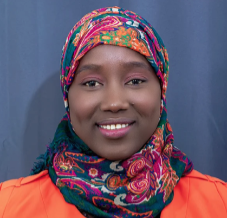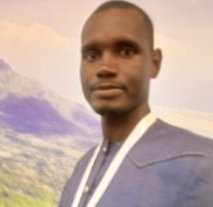Main Menu
Restoring mangrove ecosystems plays a crucial role in strengthening coastal resilience, carbon sequestration, and biodiversity conservation. However, traditional replanting methods often remain costly, time-consuming, and limited by difficult access to certain sites.
In response to these challenges, drones offer an innovative and efficient technological alternative. Their integration into mangrove restoration projects enables:
Pilot experiments have demonstrated that this approach significantly improves operational efficiency, reduces logistical costs, and enhances intervention precision. It also facilitates better integration of data into decision-support tools, thereby amplifying the impact of restoration actions.

As Drone and Data Manager at KRANTH SARL / Senegal FlyingLabs, Maty Dianka is one of Africa’s leading professional drone pilots. She holds a Master’s degree in Geomatics from UCAD and has strong expertise in geospatial technologies and drone operations. Maty leads training, research, and innovation programs at the continental level. She oversees training activities in photogrammetry, drone data collection and processing, and geospatial applications, having trained dozens of professionals across several African countries (Senegal, Côte d’Ivoire, Ghana, etc.). She has collaborated with major institutions such as the World Bank, Eiffage, and environmental agencies. A recognized speaker and trainer, she has conducted sessions on geosciences, artificial intelligence, and environmental monitoring. Recently, she led an advanced training course on the use of drones and AI in ecology for Senegalese state agents. Her dedication and international missions have made her a key figure in the development of the drone sector in Africa.
Located in the southwestern part of Senegal, on the island section of the Kafountine municipality, the Kalone Bliss Kassa Marine Protected Area (MPA), established in 2023, covers an area of 78,486 hectares. This site boasts exceptional ecological richness, making it a true natural heritage site of Senegal.
Aligned with the implementation of Nature-Based Solutions (NBS), the SEDAD project aims to contribute to the conservation and restoration of the mangrove ecosystem. Within this context, a preservation plan for the mangrove ecosystems of the Kalone Bliss Kassa MPA was developed. The methodological approach was divided into two major phases: a diagnostic phase assessing the biophysical and socio-economic conditions of the site and monitoring of mangrove characterization; followed by a phase dedicated to the development and validation of mangrove preservation plans.
Results indicate that between 2014 and 2024, the mangrove area in the Kalone Bliss Kassa MPA experienced a progressive dynamic, expanding from 26,278.06 hectares to 26,847.12 hectares—a net gain of 569.06 hectares. The study also highlighted a preservation plan structured around three operational objectives: (1) promoting effective community involvement in mangrove conservation within the MPA, (2) encouraging gradual recovery and rehabilitation of mangrove ecosystems, and (3) developing mechanisms to enhance the value of mangrove goods and services for local communities.
Ultimately, the study’s findings will contribute to better valuation of mangrove-related resources and support local development efforts.

Dr. El Hadji Sow is a geographer-environmentalist with a PhD in Geography, specializing in biodiversity and coastal ecosystem management. He is a faculty researcher at Gaston Berger University in Saint-Louis and brings over a decade of experience in biodiversity conservation and protected areas management. Between 2016 and 2023, he served as a technical expert at the Ecological Monitoring Center, contributing to regional projects such as GDZHAO, PPAMP, and OBAPAO, spanning 16 countries across West Africa.
Dr. El Hadji Sow is a geographer-environmentalist with a PhD in Geography, specializing in biodiversity and coastal ecosystem management. He is a faculty researcher at Gaston Berger University in Saint-Louis and brings over a decade of experience in biodiversity conservation and protected areas management. Between 2016 and 2023, he served as a technical expert at the Ecological Monitoring Center, contributing to regional projects such as GDZHAO, PPAMP, and OBAPAO, spanning 16 countries across West Africa.